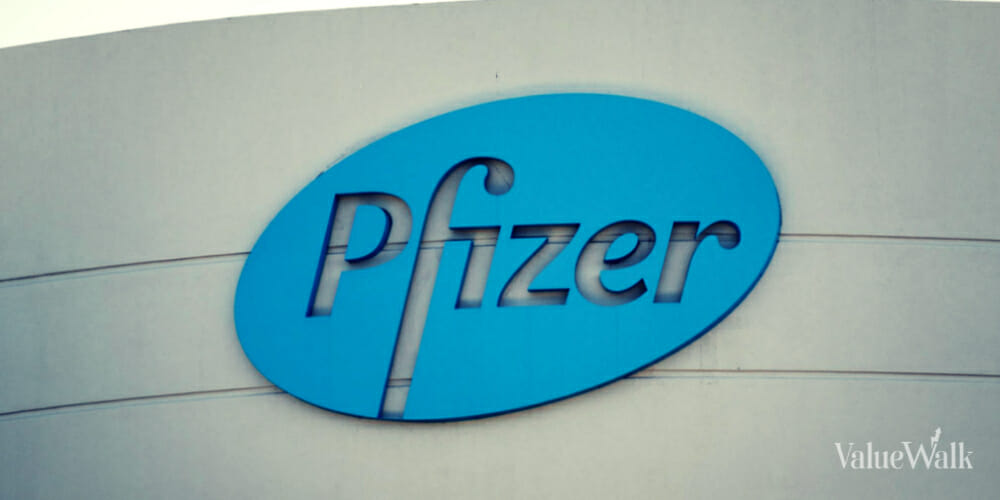Pfizer stock can’t catch a break, but that doesn’t mean it’s broke.

Pfizer (NYSE:PFE) stock is falling today, but this is just a continuation of a downward trend that has continued all year. No matter what happens in the rest of the market, Pfizer seems destined to remain a pariah on Wall Street.
On the other hand, big pharmaceutical companies like Pfizer can’t stay in the doghouse forever. So bold dip buyers might consider whether Pfizer stock is a good value or just a falling knife. When all is said and done, you’ll find generally solid companies that, while not perfect, still have the potential for a comeback.
There’s a lot of good news about Pfizer.
A company like Pfizer, which is typical in 2023, may continue to see positive developments, but its stock price seems stuck. Perhaps the market is too busy switching to artificial intelligence (AI) and the ‘Magnificent Seven’ technology stocks to focus attention on Pfizer.
Moreover, the market is not overly concerned about values and returns in 2023. That’s a shame, because Pfizer’s trailing 12-month price-to-earnings (P/E) ratio, as measured on a GAAP basis, is 15.59 relative to the sector median. The P/E ratio is 31.86. So value-oriented investors should really take a look at PFE stock.
Pfizer also offers a generous annual dividend yield of 5.7%, compared to the healthcare sector’s average dividend yield of about 1.5%. So while Pfizer is not a “Magnificent Seven” company, there are some great aspects of Pfizer stock to consider.
There is no shortage of positive news about Pfizer. First, Pfizer’s hemophilia treatment marstasimab was shown to significantly reduce the bleeding rate in patients with hemophilia types A and B. Additionally, the U.S. Food and Drug Administration (FDA) has accepted Pfizer’s Biologics License Application (BLA) for a hemophilia treatment.
The European Commission (EC) also granted conditional marketing authorization for Pfizer’s ELREXFIO (elanatamab), a proposed treatment for certain patients with multiple myeloma.
More than 50,000 Europeans are diagnosed with multiple myeloma every year, according to Chris Boshoff, senior vice president and chief oncology research and development officer at Pfizer. As a result, there is a significant market opportunity for Pfizer due to the conditional ELREXFIO approval.
Perhaps the best news is that Pfizer has now received full approval from U.S. regulators to acquire cancer treatment specialist Seagen (NASDAQ:SGEN). The timeline is moving forward quickly as Pfizer expects to complete the acquisition tomorrow.
The acquisition requires Pfizer to make some organizational changes. In particular, the company plans to create a new business unit called the Pfizer Oncology Division. The new division will integrate the specific oncology commercial and R&D operations of Pfizer and Seagen.
Overall, the Seagen acquisition will help Pfizer build its cancer treatment pipeline. It’s a win-win for all parties involved, but markets have barely reacted to Pfizer’s positive press releases this year.
Pfizer stock falls after disappointing guidance
Here are the reasons why PFE stock fell 8-9% today: Pfizer just released its 2024 outlook, and clearly investors aren’t too happy with those numbers.
Analysts expect sales of Pfizer’s COVID-19 vaccine Comirnaty to exceed $8 billion in 2024. Additionally, the company’s antiviral drug Paxlovid is expected to generate an additional $5 billion in sales in 2024.
However, Pfizer’s current projections place annual sales of Comirnaty and Paxlovid at $8 billion in 2024. combined. In other words, Pfizer’s vaccine sales outlook is average, and the market wants optimism, not humility.
This is not the only cause of disappointment. Pfizer proposed 2024 sales of $58.5 billion to $61.5 billion, while Wall Street expected $62.66 billion. Additionally, the company’s full-year adjusted earnings per share (EPS) outlook is $2.05 to $2.25, well below analysts’ consensus estimate of $3.16 per share.
These guidance ranges are problematic in an era when the market demands nothing more than consistent top and bottom line growth. Have the “Magnificent Seven” companies screwed up their not-so-good prospects to the point where investors can’t tolerate them?
This is worth considering, especially since the market has priced in a worst-case scenario for Pfizer’s 2024 sales and earnings. If the company posts decent numbers next year, there’s room for PFE stock to recover by huge proportions.
Of course, there is no guarantee that this recovery hypothesis will actually come true. Nonetheless, Pfizer stock is an interesting contrarian play for next year as investors have already priced the expected disappointment into the pie. So today could be a good day to establish a position in Pfizer stock, with a strategy of holding the stock for at least a year and collecting dividends along the way.



